In what has become an annual tradition, we asked the Law School’s distinguished faculty to tell us about the last good book they read. The results cover a wide range of genres and topics, from law to history, nonfiction to fiction.
UChicago Law alumni: Win a selection of these books!
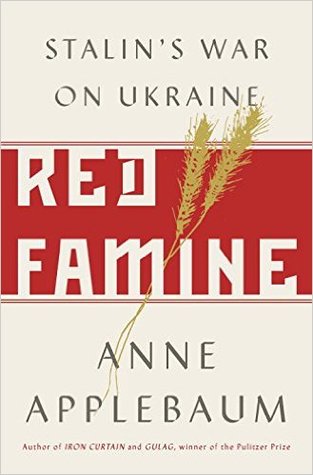
Recommended by M. Todd Henderson, Michael J. Marks Professor of Law, Mark Claster Mamolen Research Scholar
With college kids increasingly enamored with the socialist stylings of Bernie Sanders and his ilk, it is important to remind ourselves of the true legacy of collectivist thought. Applebaum’s gripping tale about Stalin’s collectivization of Ukrainian farms and the millions murdered in pursuit of egalitarian dreams should be required reading.

Recommended by Alison L. LaCroix, Robert Newton Reid Professor of Law, Associate Member of the Department of History
Follow Professor LaCroix on Goodreads
An utterly absorbing guide to what the founders—as well as their wives, children, servants, and slaves—wore. With lavish photographs of surviving period clothing, this book reminds us that eighteenth- and early-nineteenth-century Americans were fully embodied people.

Recommended by Aziz Huq, Frank and Bernice J. Greenberg Professor of Law
Follow Professor Huq on Goodreads
Migration and in particular refugee policy is a much-discussed if poorly understood flash point of political debate in America and Europe. Two Oxford academics, Alexander Betts and Paul Collier, provide a brisk and incisive account of the postwar refugee regime’s historical origins, pathways, and pathologies in Refuge: Rethinking Refugee Policy in a Changing World. Their recommendations, grounded in experience in the Middle East, are hard-headed but warm-hearted—and by rights should receive a wide and careful reception. On the same topic, but in a very different register, I also recommend Mohsin Hamid’s brilliant and humane account of the refugee experience filtered through a magical realist lens, Exit West.

Recommended by Adam Chilton, Assistant Professor of Law, Walter Mander Research Scholar
For the last year, my law school colleague Anup Malani and I have been conducting research on the economic lives of slum dwellers in Mumbai. The more I’ve learned, the more fascinated I’ve become with the topic. Mumbai’s urban poor typically do not have access to basic public services like toilets or formal legal institutions to resolve disputes, but the informal institutions that have evolved in these communities are often more rational than India’s formal institutions. The best book I’ve come across on this world is Katherine Boo’s Behind the Beautiful Forevers. Although the book is reporting on real events Boo’s learned about while spending time in a specific slum near Mumbai’s international airport, the book is written with the narrative structure of a novel. The result is an engaging look at the lives of people struggling to get by while living in a slum in the middle of India’s wealthiest city.
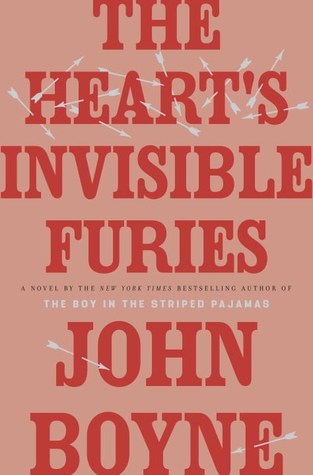
Recommended by Saul Levmore, William B. Graham Distinguished Service Professor of Law
Follow Professor Levmore on Goodreads
The Heart’s Invisible Furies, by John Boyne is so fabulous, that I have bought copies for strangers. The last fifth is just ok, but for most of the book we get an unusual history of modern Ireland, a moving story about growing up gay in a heart-braking narrow-minded society, or a novel about the decline of the Catholic church, depending on how you read the book. It is gripping and well written – and everyone will like it.
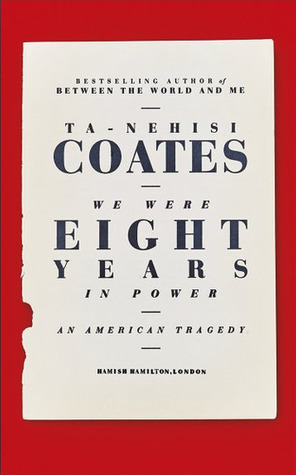
Recommended by Randolph N. Stone, Clinical Professor of Law
Follow Professor Stone on Goodreads
Incisive, provocative, and evolutionary essays on power, racism, and politics.
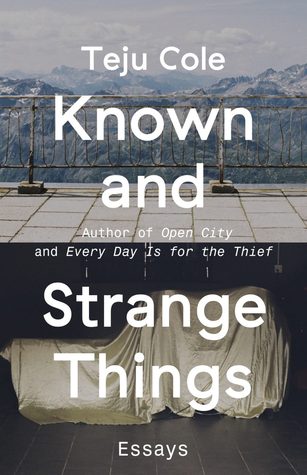
Recommended by Amy M. Hermalik, Lecturer in Law, Assistant Director of the Institute for Justice Clinic on Entrepreneurship
Vivid, beautiful, and crisp writing, mixed with important observations about "small" and "big" things, sprinkled with historical facts and full of poignantly real moments in human lives. Pieces of this collection of essays will stay with you because of their stunning beauty and others will stay with you because of their truth. This is one of the first books in years where I have found myself re-reading parts of it days or weeks later just to revisit the words.
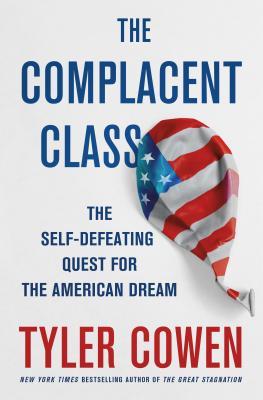
Recommended by Amy M. Hermalik, Lecturer in Law, Assistant Director of the Institute for Justice Clinic on Entrepreneurship
It's a bit all over the place and it doesn't give you the crisp answers you'd like, but it's full of many important points about a rising tide of complacency and how that could hurt our country for decades to come if we do not fix it. It is also chock full of interesting data points.

Recommended by Thomas J. Miles, Dean, Clifton R. Musser Professor of Law and Economics
Follow Dean Miles on Goodreads
A fascinating memoir of service in city government, in which seemingly insurmountable obstacles were overcome to make lives better for millions of New Yorkers. It is filled with insights on topics ranging from what makes cities grow to what makes leaders successful.

Recommended by Alison L. LaCroix, Robert Newton Reid Professor of Law, Associate Member of the Department of History
Follow Professor LaCroix on Goodreads
An atmospheric thriller of nefarious and romantic doings in early-nineteenth-century Cornwall. Gloomy nighttime coach rides, feints to dodge the exciseman, chases across rocky moors, and mysterious locked rooms—all here, from one of the great plot-spinners of the twentieth century.

Recommended by Thomas J. Miles, Dean, Clifton R. Musser Professor of Law and Economics
Follow Dean Miles on Goodreads
Housing is a vital component of our society and economy. These stimulating essays are the proceedings of a stellar conference by the Law School’s Kreisman Housing Initiative. They are penned by leading scholars who deploy multiple methods to examine many facets of housing, from defaults and the financial crisis to retirement communities and the conversion of churches to condos.

Recommended by Daniel Hemel, Assistant Professor of Law
Jonathan Safran Foer’s third novel is much darker than his first two (which is saying something—because the first one was a reflection on the Holocaust and the second focused on the aftermath of 9/11). But “Here I Am” manages to be laugh-out-loud funny at the same time that it grapples with divorce, suicide, and conflict in the Middle East. Comparisons to Philip Roth are inevitable and in my view entirely warranted: I thought that “Here I Am” stacked up favorably next to Roth’s best books.

Recommended by Anup Malani, Lee and Brena Freeman Professor of Law
My family and I started reading Neil Gaiman’s Norse Mythology after an amazing trip to Iceland. Gaiman is a gifted storyteller and it’s hard to find a book of his I do not like.

Recommended by Gerald Rosenberg, Associate Professor of Political Science
I really enjoyed The Glass Palace by Amitav Ghosh. It’s an epic, sweeping tale of India and Burma before, during and after WWII. It makes a wonderful audio tape.

Recommended by Richard H. McAdams, Bernard D. Meltzer Professor of Law
Follow Professor McAdams on Goodreads
I was recently entertained by the dry comedy of Graham Greene’s spy novel Our Man in Havana. In preparation for the War in Law and Literature conference this February at the law school, I read Ernest Hemingway’s beautifully melancholic World War I novel, A Farewell to Arms and re-read Herman Melville’s troubling Billy Budd, which is the subject of the paper I am writing. I am nearly finished reading the whimsical and elegant A Gentleman in Moscow: A Novel, by Amor Towles. And I have recently started and am thoroughly enjoying N.K. Jemisin’s award-winning fantasy novel, The Fifth Season.
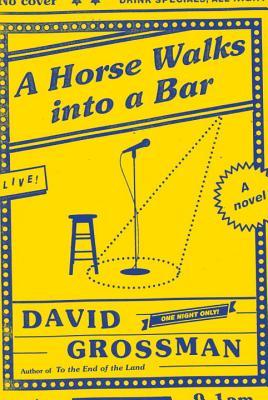
Recommended by Omri Ben-Shahar, Leo and Eileen Herzel Professor of Law, Kearney Director of the Coase-Sandor Institute for Law and Economics
Follow Professor Ben-Shahar on Goodreads
I recommend Amos Oz’ Judas and David Grossman’s A Horse Walks Into A Bar. UNPUTDOWNABLE! (to use an adjective from the ridiculous repertoire of superlatives that book critics employ). These are two recent books from Israel’s best contemporary writers. No description can do justice to these incredibly original, soul-piercing, fictional explorations of Israeli identities and their grounding in Jewish history.
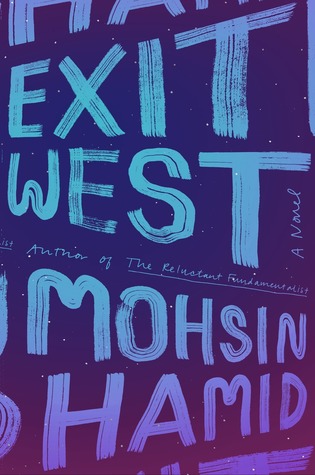
Recommended by Aziz Huq, Frank and Bernice J. Greenberg Professor of Law
Follow Professor Huq on Goodreads
Migration and in particular refugee policy is a much-discussed if poorly understood flash point of political debate in America and Europe. Two Oxford academics, Alexander Betts and Paul Collier, provide a brisk and incisive account of the postwar refugee regime’s historical origins, pathways, and pathologies in Refuge: Rethinking Refugee Policy in a Changing World. Their recommendations, grounded in experience in the Middle East, are hard-headed but warm-hearted—and by rights should receive a wide and careful reception. On the same topic, but in a very different register, I also recommend Mohsin Hamid’s brilliant and humane account of the refugee experience filtered through a magical realist lens, Exit West.

Recommended by Martha C. Nussbaum, Ernst Freund Distinguished Service Professor of Law and Ethics
Follow Professor Nussbaum on Goodreads
For the Greenberg Seminar that I'm teaching with William Birdthistle, we just read Thomas Hardy's Tess of the D'Urbervilles (1891), which I had read long ago. But rereading it in the midst of our society's upheaval and reckoning concerning sexual assault and sexual harassment made it particularly fascinating. Many 19th century novels deal with seduction, sexual assault, and exploitation. Ever since Richardson's Clarissa (1748), written, its author says, after many conversations with women, who offered advice on his drafts, novels have tried to show this problem to the public, but not always with a profoundly critical examination of conventional morality. Often the "fallen woman" is shown as guilty and sullied, even though the man is the aggressor. This is true even of the great George Eliot, among our greatest female novelists, who, in Adam Bede, clearly blames Hetty Sorrel for being seduced. Richardson already saw things more justly, and in the nineteenth century the two great social critics on this issue were Anthony Trollope (especially in Doctor Thorne and The Vicar of Bullhampton) and Hardy. Hardy's subtitle, on which he insists very emphatically, is "a pure woman," and the novel challenges the prevalent dichotomy between "pure" and "impure." Tess is not the less pure because she was raped. Hardy also shows how slippery the line is between seduction in a situation of asymmetrical power and rape. The novel explores this terrain with much subtlety. And the portrait of Tess's husband Angel Clare, the would-be non-dominating man who nevertheless recoils in horror once he learns that Tess has been raped (despite owning to voluntary sexual extravagance in his own youth) demonstrates clearly the horrible weight of the sexual double standard, which we are only beginning to challenge effectively. There are ethical flaws in the novel: in particular, Hardy romanticizes working-class rural life as somehow cleaner or better than urban life, a common form of Victorian sentimentality. But its central characters are depicted with superb insight. We had a marvelous discussion.

Recommended by Richard H. McAdams, Bernard D. Meltzer Professor of Law
Follow Professor McAdams on Goodreads
I was recently entertained by the dry comedy of Graham Greene’s spy novel Our Man in Havana. In preparation for the War in Law and Literature conference this February at the law school, I read Ernest Hemingway’s beautifully melancholic World War I novel, A Farewell to Arms and re-read Herman Melville’s troubling Billy Budd, which is the subject of the paper I am writing. I am nearly finished reading the whimsical and elegant A Gentleman in Moscow: A Novel, by Amor Towles. And I have recently started and am thoroughly enjoying N.K. Jemisin’s award-winning fantasy novel, The Fifth Season.

Recommended by Anup Malani, Lee and Brena Freeman Professor of Law
I recently finished Adam Hochschild’s King Leopold’s Ghost, the horrific history of Belgium’s colonization of the Congo, and Steven Johnson’s The Ghost Map, about the 1854 cholera outbreak in London. Both books give a glimpse into the highs and lows of human behavior.

Recommended by M. Todd Henderson, Michael J. Marks Professor of Law, Mark Claster Mamolen Research Scholar
A classic examination of mass movements written by a former dock worker who went on to win the Presidential Medal of Freedom. Although decades old, it seems highly relevant in the Age of Trump.
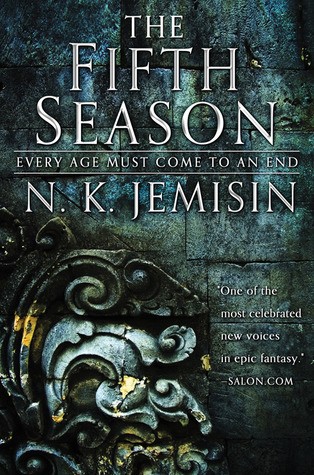
Recommended by Richard H. McAdams, Bernard D. Meltzer Professor of Law
Follow Professor McAdams on Goodreads
I was recently entertained by the dry comedy of Graham Greene’s spy novel Our Man in Havana. In preparation for the War in Law and Literature conference this February at the law school, I read Ernest Hemingway’s beautifully melancholic World War I novel, A Farewell to Arms and re-read Herman Melville’s troubling Billy Budd, which is the subject of the paper I am writing. I am nearly finished reading the whimsical and elegant A Gentleman in Moscow: A Novel, by Amor Towles. And I have recently started and am thoroughly enjoying N.K. Jemisin’s award-winning fantasy novel, The Fifth Season.

Recommended by Anup Malani, Lee and Brena Freeman Professor of Law
I recently finished Adam Hochschild’s King Leopold’s Ghost, the horrific history of Belgium’s colonization of the Congo, and Steven Johnson’s The Ghost Map, about the 1854 cholera outbreak in London. Both books give a glimpse into the highs and lows of human behavior.

Recommended by Salen Churi, Assistant Clinical Professor of Law, Bluhm-Helfand Director of the Innovation Clinic
This is a quick read but dense with interesting insights on human connection, examining tribalism historically and culturally. At a time when much ink is spilled about the negative aspects of tribalism, Junger explores how adversity can create uniquely deep interpersonal bonds.
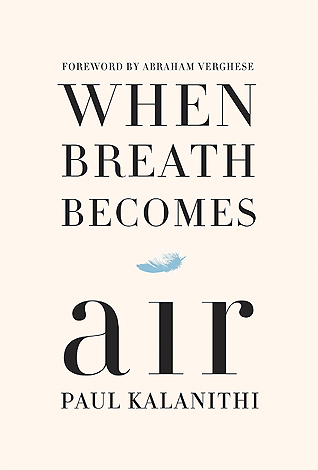
Recommended by Erica Zunkel, Assistant Clinical Professor of Law, Associate Director of the Federal Criminal Justice Clinic
This is a book that stays with you. The author, a high-powered neurosurgeon, is diagnosed with an aggressive form of cancer at the age of 36. While the book centers on death, it is much more about being alive. How do we choose to spend our days, months, years in our short time on earth? As a new parent, it brought me to tears, and made me reflect on my own life and career choices in ways that I haven’t before.
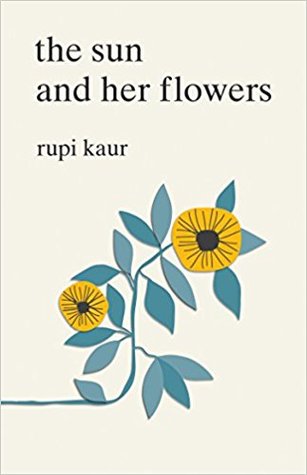
Recommended by Amy M. Hermalik, Lecturer in Law, Assistant Director of the Institute for Justice Clinic on Entrepreneurship
This is the second poetry collection released by Rupi Kaur and it is as poignant and stunningly simple as the first book (Milk and Honey). After I read the first book, I immediately bought copies for all of my best female friends. The second book is just as good. Her poems will speak to any reader—they are simple reflections on life, sadness, empowerment, heartbreak, relationships, and growth—but they will ring extra-true for many women, who will find many of their stories echoed in her words.

Recommended by Randal C. Picker, James Parker Hall Distinguished Service Professor of Law, Senior Fellow at the Computation Institute of the University of Chicago Argonne National Laboratory
Follow Professor Picker on Goodreads
McPhee is a Pulitzer-Prize winning author, a frequent writer for The New Yorker and teaches writing at Princeton. Draft No. 4 pulls together in one volume essays on his writing process. The chapter on text organization was particularly interesting. Other parts of the book offered fun windows into the publishing process at The New Yorker—we should all have them fact-check our work—even if that is less obviously applicable to the rest of us. I still would have liked more ideas that I could put to work directly, but your mileage may vary.

Recommended by Richard H. McAdams, Bernard D. Meltzer Professor of Law
Follow Professor McAdams on Goodreads
I was recently entertained by the dry comedy of Graham Greene’s spy novel Our Man in Havana. In preparation for the War in Law and Literature conference this February at the law school, I read Ernest Hemingway’s beautifully melancholic World War I novel, A Farewell to Arms and re-read Herman Melville’s troubling Billy Budd, which is the subject of the paper I am writing. I am nearly finished reading the whimsical and elegant A Gentleman in Moscow: A Novel, by Amor Towles. And I have recently started and am thoroughly enjoying N.K. Jemisin’s award-winning fantasy novel, The Fifth Season.

Recommended by Mark J. Heyrman, Clinical Professor of Law
I am reading The Sympathizer by Viet Thanh Nguyen, which won 2016 Pulitzer Prize for Fiction. At times wonderfully funny, but also frightening and sad, it recounts the experiences of a Vietnamese spy who fled South Vietnam for the United States on the day Saigon fell to the North Vietnamese. It is timely account of the life of an immigrant, the attitudes of immigrants toward their new home and the attitudes of Americans toward immigrants, particularly non-Europeans, as well as the aftermath of what the Vietnamese call “the American War.”

Recommended by Albert Alschuler, Julius Kreeger Professor Emeritus of Law and Criminology
If you’ve never read a history of the U.S.-Dakota War of 1862 and the largest mass execution in American history, you should. It’s a gripping, tragic, and instructive tale. This short volume gives a full account of the war while focusing particularly on Benjamin Whipple, the first Episcopal bishop of Minnesota and a courageous critic of the government’s treatment of Native Americans. You’re likely not only to admire Whipple but also to admire President Lincoln anew.

Recommended by Thomas J. Miles, Dean, Clifton R. Musser Professor of Law and Economics
Follow Dean Miles on Goodreads
A topic that is often viewed with apprehension is embraced here with optimism and buoyed by a dialogue with always thought-provoking and often contrasting views.

Recommended by Omri Ben-Shahar, Leo and Eileen Herzel Professor of Law, Kearney Director of the Coase-Sandor Institute for Law and Economics
Follow Professor Ben-Shahar on Goodreads
I recommend Amos Oz’ Judas and David Grossman’s A Horse Walks Into A Bar. UNPUTDOWNABLE! (to use an adjective from the ridiculous repertoire of superlatives that book critics employ). These are two recent books from Israel’s best contemporary writers. No description can do justice to these incredibly original, soul-piercing, fictional explorations of Israeli identities and their grounding in Jewish history.

Recommended by Nicholas Stephanopoulos, Professor of Law, Herbert and Marjorie Fried Research Scholar
The Tyrannicide Brief, by Geoffrey Robertson, is an engrossing biography of John Cooke, the heroic lawyer who prosecuted Charles I and sent him to the scaffold. Cooke, Robertson convincingly argues, has been underappreciated by generations of scholars. He was no wild-eyed republican consumed by hatred of the monarchy. Rather, he laid the groundwork for the principle (now universally accepted) that tyrannical rulers should be held accountable for their crimes. He also pioneered an array of concepts that, centuries later, became hallmarks of the Ango-American legal tradition: the accused's right to silence, legal aid for the poor, the fusion of law and equity, and so on.
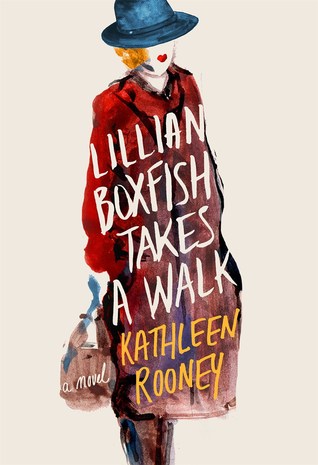
Recommended by Joan E. Neal, Professor from Practice
This novel takes place over one night of an elderly woman’s life (New Year’s Eve 1984), in which she wanders New York City, encounters many different people (both new and familiar), and reflects back upon her life. She is a quick-witted and spunky person, and was one of the first (and most famous) women in advertising starting in the 1930s. It is also a great portrait of NYC in the 20th century. A very engaging character and book.

Recommended by Anup Malani, Lee and Brena Freeman Professor of Law
I am reading Robert Sapolsky’s Behave. I loved his book on the science of stress, Why Zebra’s Don’t Get Ulcers, and the reviews of Behave rave about the book. They aren’t wrong.

Recommended by Alison L. LaCroix, Robert Newton Reid Professor of Law, Associate Member of the Department of History
Follow Professor LaCroix on Goodreads
George Washington’s America: A Biography Through His Maps by Barnet Schecter is essential reading—and, with pages of full-color eighteenth-century maps and prints, it’s also a visual delight—for anyone interested in Washington, British imperial warfare in North America, or the Revolution. See especially the Yorktown battlefield maps—can you spot Redoubt 10 (stormed by Lt. Col. A. Hamilton in October 1781)?
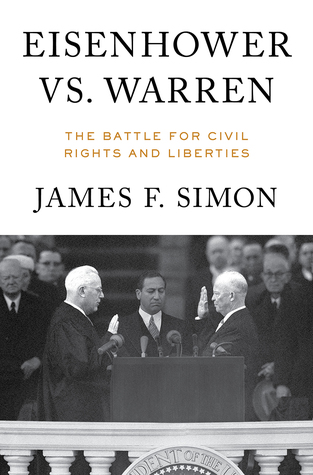
Recommended by Geoffrey R. Stone, Edward H. Levi Distinguished Service Professor of Law
Follow Professor Stone on Goodreads
James Simon's Eisenhower vs. Warren: The Battle for Civil Rights and Liberties (Liveright 2018), will be released on April 3 but can be pre-ordered on Amazon. I read it as a reviewer for the publisher. It is terrific. Simon offers a truly masterful telling of the complex relationship between two of the most influential and compelling figures in mid-twentieth century America. Exploring such fundamental issues as racial segregation and McCarthyism, Simon takes us beyond the scenes in the White House, the Congress, and the Supreme Court to reveal with extraordinary intimacy the conflicts, the compromises, and the sometimes shaped antagonisms that shaped one of the most pivotal periods in American history. Quite frankly, I couldn't put it down!

Recommended by Dennis J. Hutchinson, William Rainey Harper Professor in the College, Master of the New Collegiate Division, Deputy Dean of the College, Senior Lecturer in Law
Follow Professor Hutchinson on Goodreads
A careful, detailed revisionist account. Julia Child, M. F. K. Fisher, and Alexis Lichine lose their luster, and, surprise, the real stars are A. J. Liebling, Richard Olney, and Alice B. Toklas. The portrait of Olney is particularly penetrating.

Recommended by Dennis J. Hutchinson, William Rainey Harper Professor in the College, Master of the New Collegiate Division, Deputy Dean of the College, Senior Lecturer in Law
Follow Professor Hutchinson on Goodreads
Seward: Lincoln's Indispensable Man, by Walter Stahr (2013), a detailed and careful account of Lincoln’s closest advisor and most important adviser. His complexity emerges clearly if deliberately.

Recommended by William Baude, Neubauer Family Assistant Professor of Law
I am a sucker for time travel novels, but this excellent new caper is not an ordinary time travel book. It explores the surprising reason for witchcraft's demise, the dynamics of government bureaucracy, and the corruption of academia by the military industry complex. And yet it is light, funny, and not particularly mystical. If you've read the authors' work before, you might be able to guess how they pull this off. If not, now is the time to start.

Recommended by M. Todd Henderson, Michael J. Marks Professor of Law, Mark Claster Mamolen Research Scholar
This is Steve Bannon’s favorite book, but don’t let that dissuade you. Written in the 1990s by two historians (with no ideological axe to grind), it is about the role that generation types have on history. Drawing on hundreds of years of American and British history, they tell a compelling (or, at the very least, thought provoking) story about our history and offer bold predictions about our future. Hint: The Millennials are our saviors!
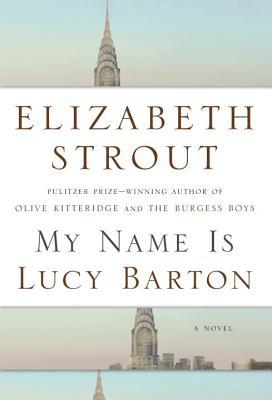
Recommended by Aziz Huq, Frank and Bernice J. Greenberg Professor of Law
Follow Professor Huq on Goodreads
My Name is Lucy Barton, by Elizabeth Strout, is a finely drawn portrait of a mother-daughter relationship. The eponymous character, hospital bound in New York, is visited by her mother and recollects fragments from a hard-scrabble childhood in rural Illinois. I found it resonant and piercing as an account of child-parent bonds more generally, and deeply appreciated its precise, almost austere prose style.

Recommended by Albert Alschuler, Julius Kreeger Professor Emeritus of Law and Criminology
Nothing in this bestseller is believable—not the events, not the characters, and not the settings—but, if you’re like me, you will believe and will be moved. Especially by the monstrously abused 14-year-old heroine Turtle. Because the thoughts and emotions of all the characters are believable, even when they surprise. Be prepared for the most violent scenes you’ve encountered anywhere, but see if you don’t think you gain from experiencing them. Stephen King's unsolicited blurb pronounces this book a masterpiece, and I concur.
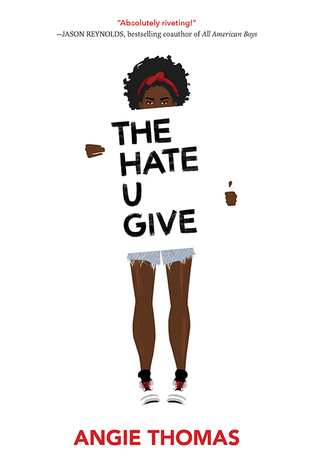
Recommended by Randolph N. Stone, Clinical Professor of Law
Follow Professor Stone on Goodreads
Thoughtful and compelling contemporary young adult novel about a teen ager negotiating race, class and violence.
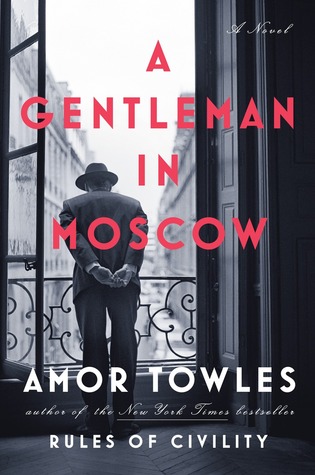
Recommended by Richard H. McAdams, Bernard D. Meltzer Professor of Law
Follow Professor McAdams on Goodreads
I was recently entertained by the dry comedy of Graham Greene’s spy novel Our Man in Havana. In preparation for the War in Law and Literature conference this February at the law school, I read Ernest Hemingway’s beautifully melancholic World War I novel, A Farewell to Arms and re-read Herman Melville’s troubling Billy Budd, which is the subject of the paper I am writing. I am nearly finished reading the whimsical and elegant A Gentleman in Moscow: A Novel, by Amor Towles. And I have recently started and am thoroughly enjoying N.K. Jemisin’s award-winning fantasy novel, The Fifth Season.

Recommended by R. H. Helmholz, Ruth Wyatt Rosenson Distinguished Service Professor of Law
Follow Professor Helmholz on Goodreads
My most interesting recent book of general interest is: Hester Vaizey, Born in the GDR (Oxford Press 2014). It traces the lives and the reactions of a sample of East Germans to the coming down of the Berlin Wall and the reunification of East and West Germany. Particularly interesting because the author has some sympathy with the GDR. In her view, there was both gain and loss from this dramatic event and its aftermath.

Recommended by M. Todd Henderson, Michael J. Marks Professor of Law, Mark Claster Mamolen Research Scholar
In the 1990s, Brazil took an innovative approach to native peoples: they decided to not contact some tribes, preserving them in historical stasis with no interaction with the modern world. This is the tale of an American journalist who goes along with the Brazilian government agents seeking to identify the tribes (from a distance) and cordon them off from the world. A well spun yarn that raises deep questions.

Recommended by Douglas G. Baird, Harry A. Bigelow Distinguished Service Professor of Law
Follow Professor Baird on Goodreads
Now and again, I take stock of books that are accepted as classics that, for one reason or another, I never read. This novel is one I turned to this summer. It perfectly captures a landed family in decline in England between the First and Second World Wars. Think of it as Downton Abbey on a much smaller canvas.

Recommended by Tom Ginsburg, Leo Spitz Professor of International Law, Ludwig and Hilde Wolf Research Scholar, Professor of Political Science
Follow Professor Ginsburg on Goodreads
This is a fine account of the administrative and military practices pioneered by the Mongolian empire, the largest the world has ever known. Besides providing a highly readable account of Genghis’ rise and the empire’s relatively fast disintegration after a little more than a century, the book makes the additional claim that Genghis influenced our own concept of religious freedom. Genghis was not the first world leader to insist on freedom of religion (that would likely be Ashoka) but his notion was important for our own reception of the idea. Weatherford speculatively traces European accounts of the Mongols, through various re-workings in the late Middle Ages and ultimately to a book in Thomas Jefferson’s library.
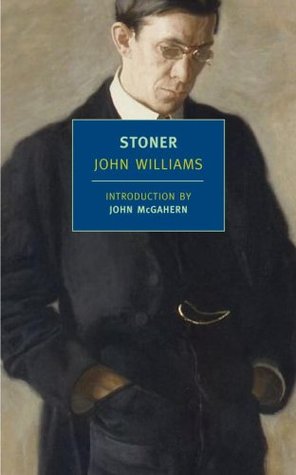
Recommended by Joan E. Neal, Professor from Practice
This novel tells the story of a man born to a hardscrabble farming life, who weathers the Great Depression, and who surprisingly (even to himself) goes on to become an academic – but it is not a typical “pull-oneself-up-by-the-bootstraps” story. William Stoner is unlucky in many aspects of his life: career advancement, love, marriage, etc. Yet he somehow accepts all of these disappointments in a stoic way. His character reminded me very much of my Scandinavian Midwestern farming relatives of that generation, which is perhaps why I was drawn to this book.

Recommended by William Baude, Neubauer Family Assistant Professor of Law
This new book by a young lawyer provides an accessible, fun, and yet sophisticated introduction to originalism. The title comes from an exchange between James Madison and Thomas Jefferson about binding future generations to the Constitution. Jefferson protested that the earth belongs to the living and that we should not be ruled by the "dead hand" of the past. Madison responded that the improvements made by the dead, such as the Constitution, form "a debt against the living." Wurman argues that we are all still in the Constitution's debt.